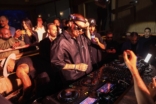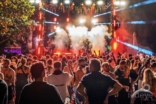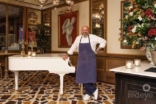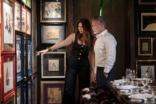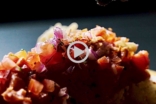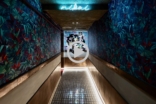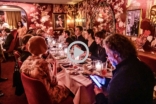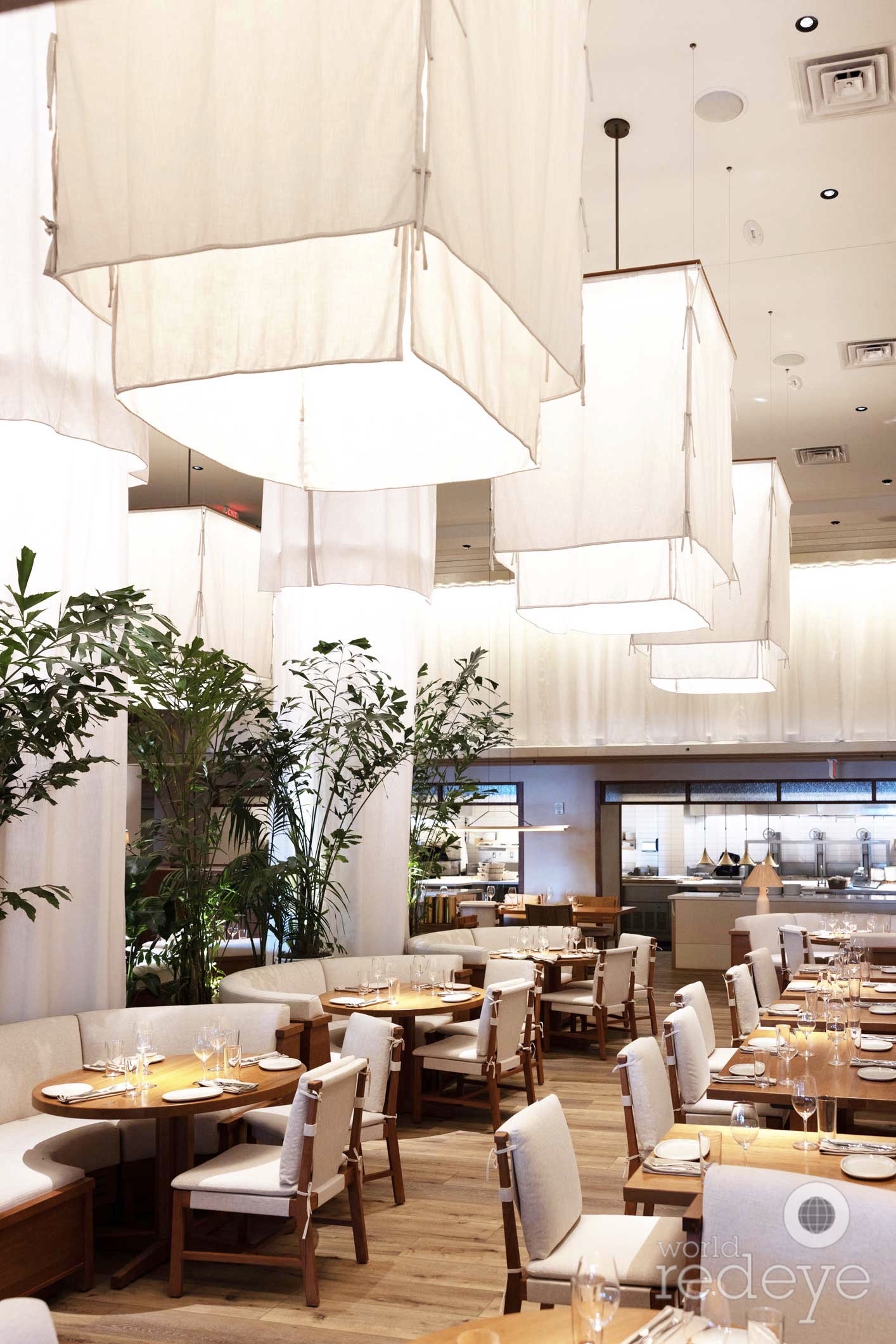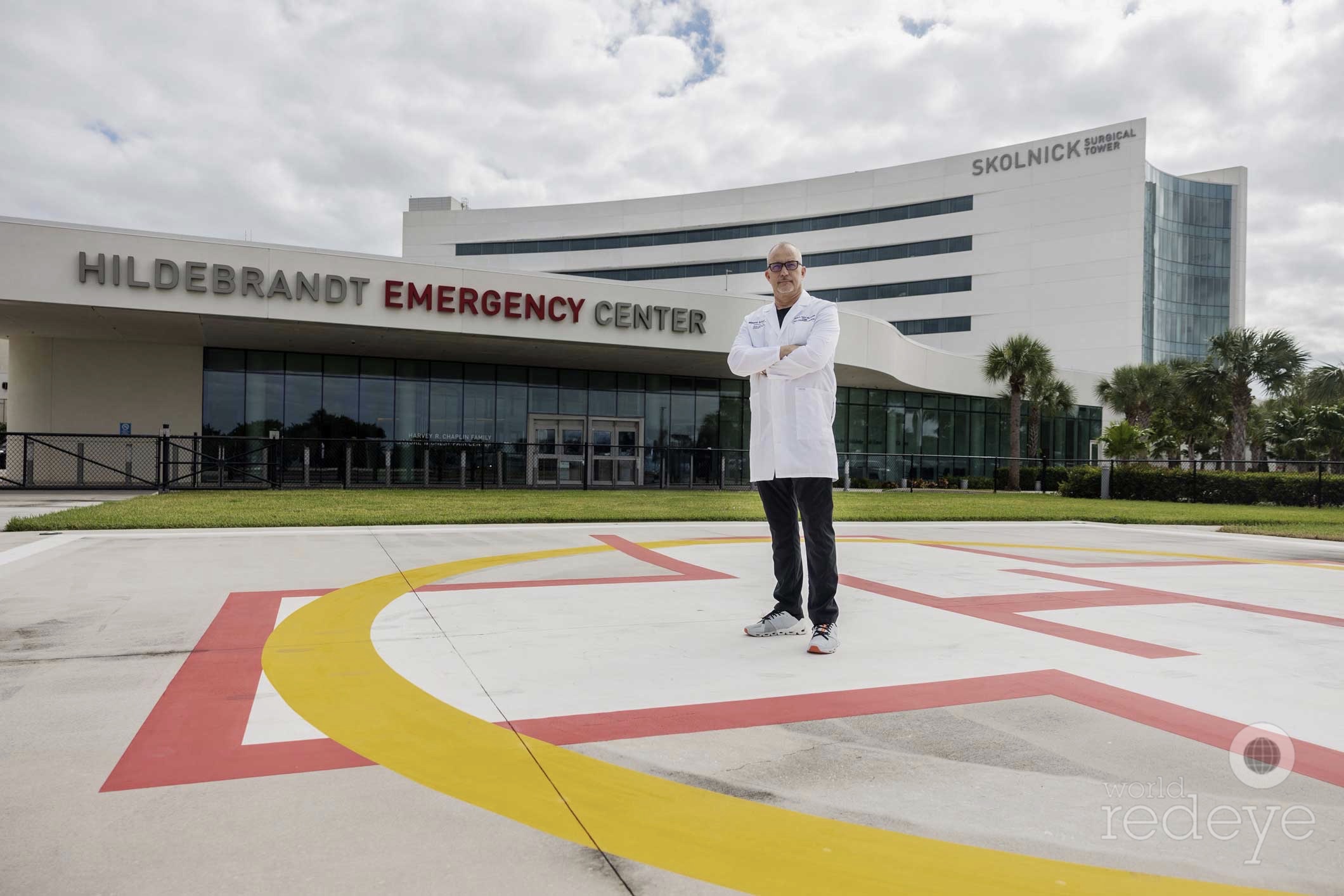
Dr. David A. Farcy
Miami Beach, FL – January 9, 2025 – We walk amongst real life heroes everyday — Dr. David A. Farcy, Chair of Emergency Medicine and Director of Emergency Medicine Critical Care at Mount Sinai Medical Center, is one of them.
A former U.S. Air Force medic, Dr. Farcy is a 4th generation doctor who immigrated to the United States from his native Marsielle, France at the age of 17, pursuing his education and joining the Air Force. “It wasn’t until I was getting out of serving in the United states Air Force that I understood my role to really impact the future generation lies in becoming a doctor,” he shares.
In the years that follow, Dr. Farcy earned his medical degree from Universidad Autónoma de Guadalajara and completed his residency at Maimonides Medical Center, followed by a fellowship at the R Adams Cowley Shock Trauma Center.
Dr. Farcy is a renowned educator, speaker, and author in emergency medicine and critical care, focusing on cardiac arrest, resuscitation, and disaster medicine. He has held key leadership roles, including Past President of the American Academy of Emergency Medicine (AAEM) and Vice Chair of Research at FIU’s Herbert Wertheim College of Medicine. “I love the intensity of my job — it’s the fire that fuels my drive,” Dr. Farcy continues.
His crisis response efforts span multiple international disasters, from Hurricane Andrew to the COVID-19 pandemic, during which he helped establish protocols and a field hospital in Miami Beach.
Recognized for his leadership and dedication, he has received numerous awards, including the Shock Trauma Hero Award, Joe Lex Educator of the Year, and AAEM Master of Emergency Medicine.
When asked what advice he would give young doctors in Miami, Dr. Farcy shared, “Don’t get lost and lose yourself — Set realistic goals, live below your mean, do not be envious, stay honest and if it’s too good to be true, it’s likely a scam.”
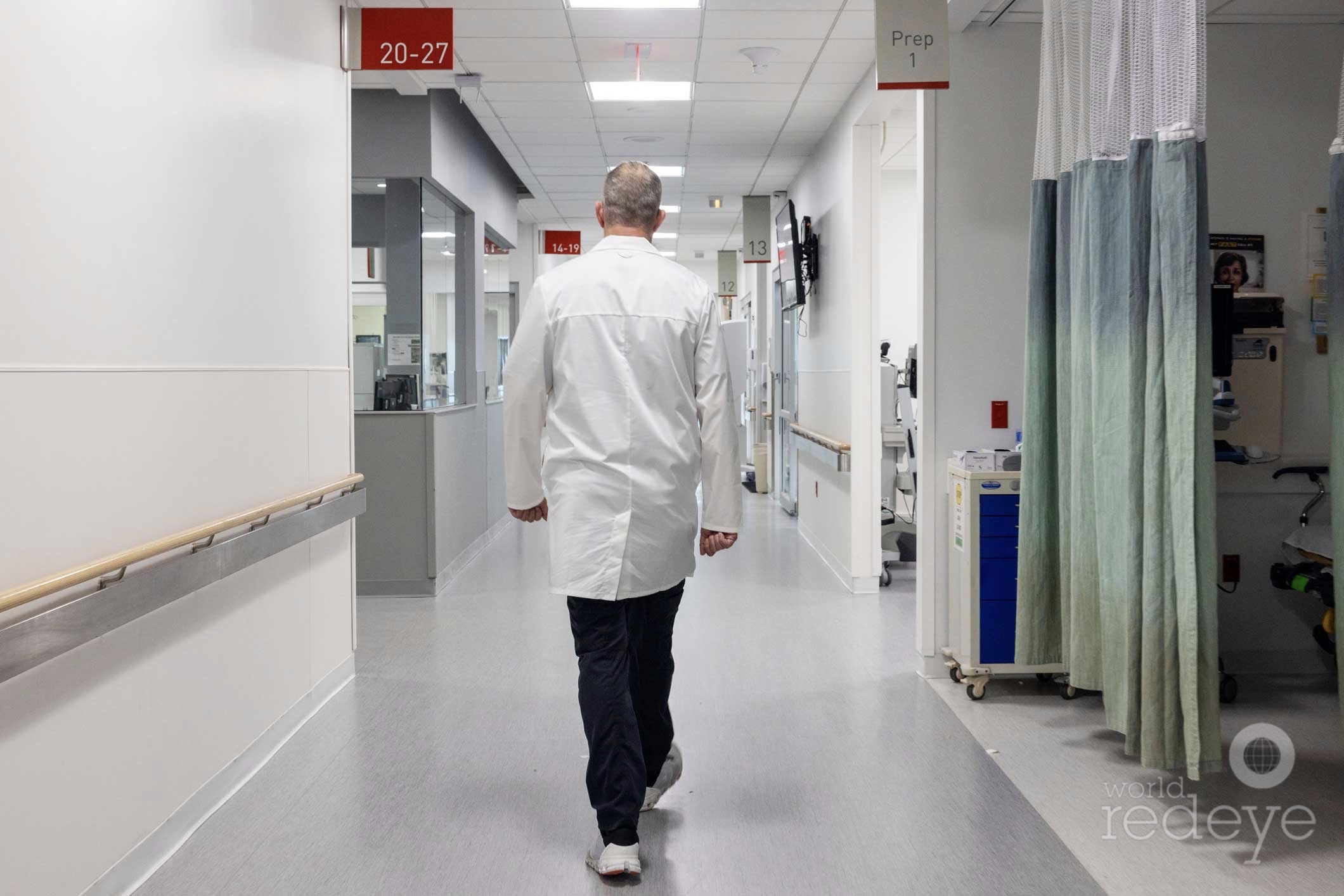
Dr. David A. Farcy
WRE: Are you from Miami originally?
DF: I was born in Marseille, France, from a long lineage of doctors, me being the fourth generation. I moved to America at the age of 17 to join my father, graduated high school, and joined the United States Air Force.
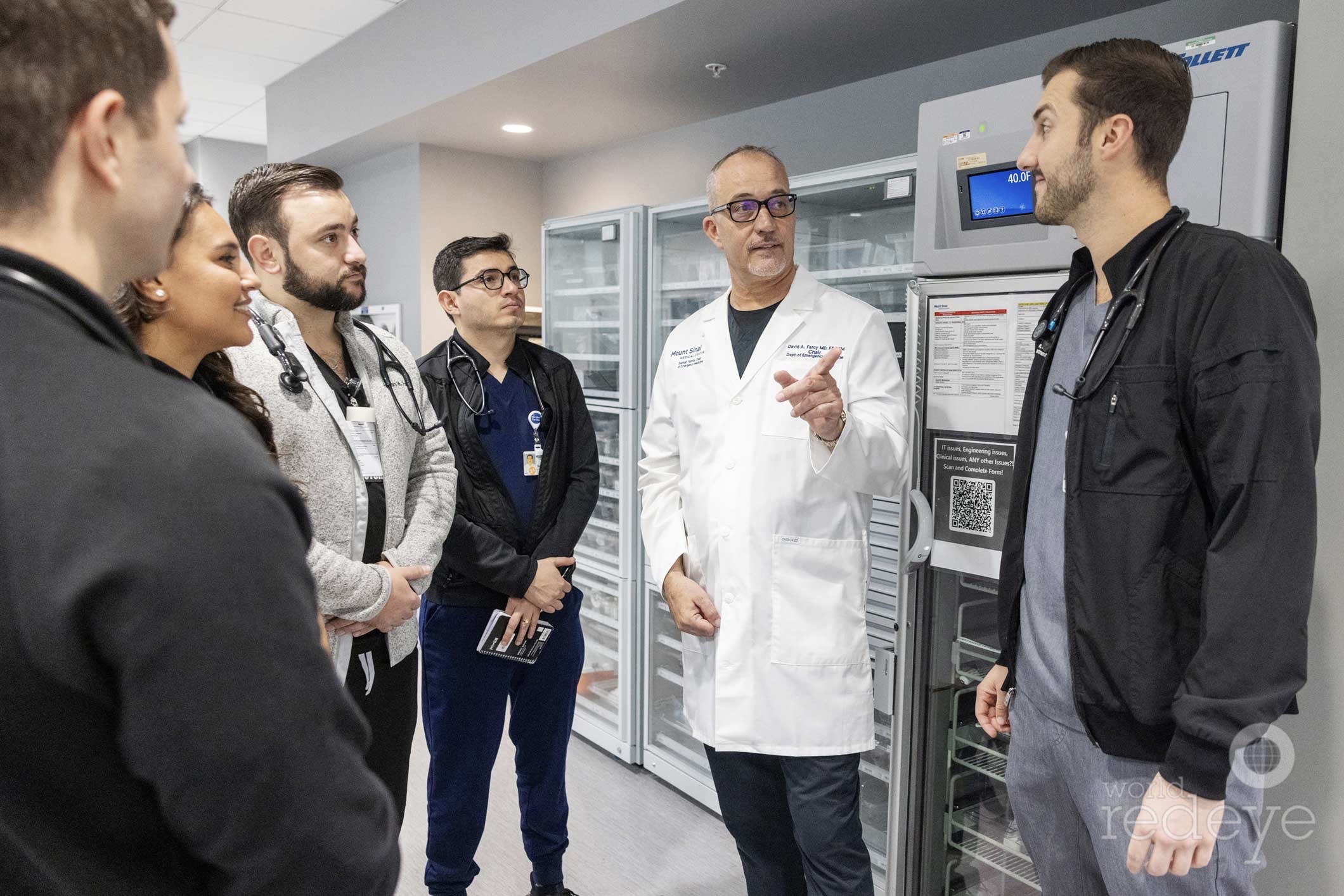
Dr. David A. Farcy
WRE: What inspired you to choose emergency medicine?
DF: I wouldn’t say I chose emergency medicine, but more that emergency medicine chose me. From as early as I can remember, the desire to help, assist, and care for others was evident. I would go to the operating room with my dad, uncle, and grandfather to see patients as early as six or eight years old. I joined a Volunteer Fire Department in New York at the age of 17, became an EMT and paramedic, and ventured into pre-hospital care. The frustration and desire to know more and do more were inexplicable. It wasn’t until I was getting out of the United States Air Force that I understood my role in truly impacting future generations would be through becoming a doctor.
Even during medical school, I found that the emergency aspect of every specialty attracted me. Call it self-gratification if you want, but it’s the split-second moments where you can make the difference between life and death, with a wrong decision leading to the worst outcome. During my residency, I realized that if a patient’s path is set in the wrong direction, the outcome could be catastrophic. I noticed that other specialties were setting guidelines for emergency medicine and critical care without much experience in what emergency physicians or critical care physicians did. From my residency, I knew I had to climb to a leadership position in emergency medicine to affect and change our specialty.
After completing my residency at Maimonides Medical Center in Brooklyn, NY, I completed the distinguished and well-recognized fellowship in critical care and emergency medicine at Shock Trauma Medical Center, University of Maryland, under my mentor and moral compass, Dr. Thomas Scale, who ingrained in me the concept: “We do not quit on patients; we let patients quit on us.” He taught me that our certainties about disease processes we know little about can be catastrophic. This fueled my desire to change medicine and help people in their time of need when they are weak, scared, and vulnerable. Sometimes there is nothing you can do but hold their hand or comfort a significant other as they grieve the loss of their loved one.
Twenty-five years ago, I was told never to apologize or say sorry. Today, it is proven that families who have lost a loved one heal faster when they feel the physician’s compassion and care. Over almost two decades in Miami Beach, I can tell you that compassion has saved many people walking among us when someone had labeled them “goners” or said they “would not make it.” It is not that I am more intelligent than other doctors, but the fire inside me is my compassion and love for humanity. In our small village of Miami Beach, patients are not just patients; they are friends, family, and friends of friends.
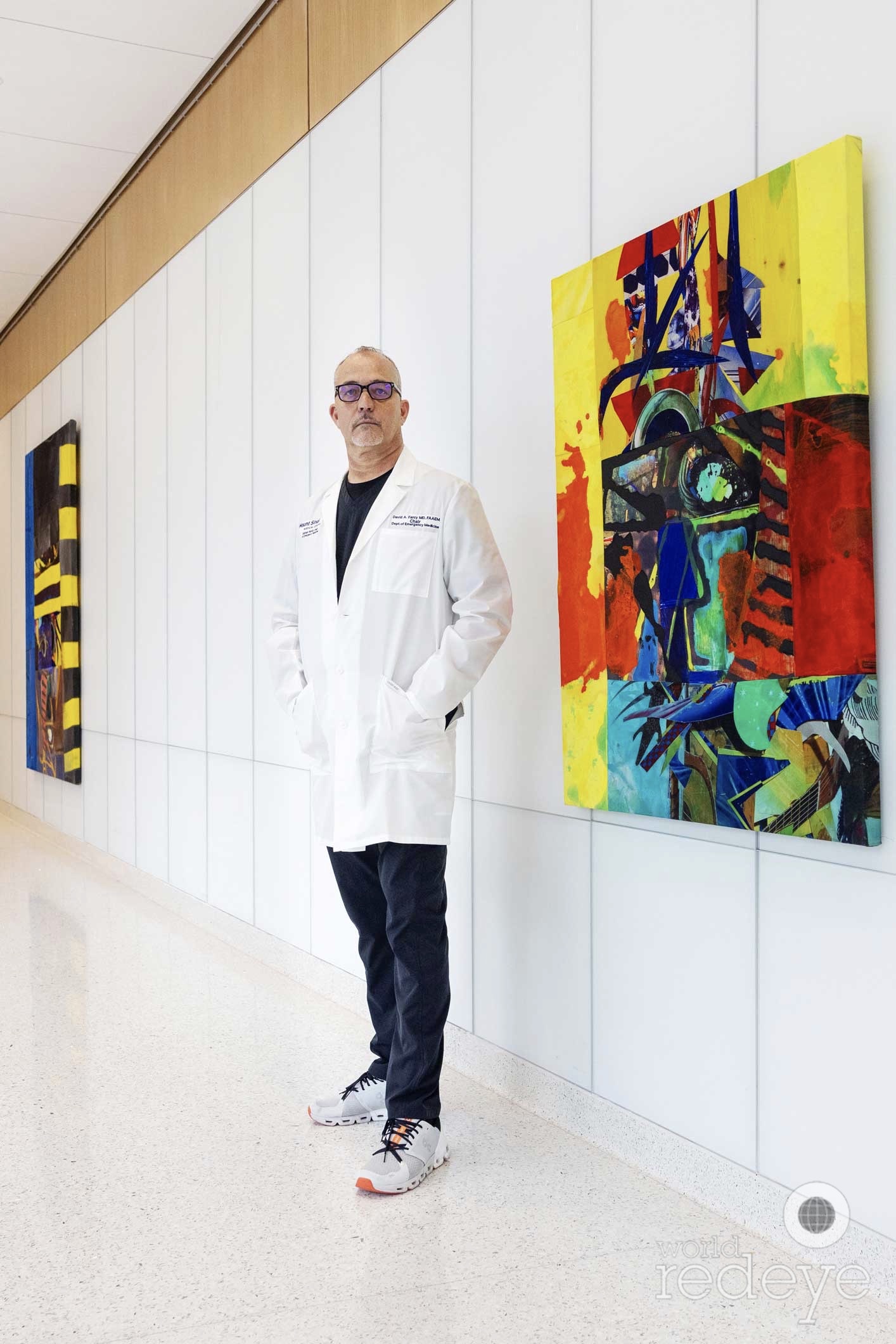
Dr. David A. Farcy
Over almost two decades in Miami Beach, I can tell you that compassion has saved many people walking among us when someone had labeled them ‘goners’ or said they ‘would not make it’.
Dr. David A. Farcy
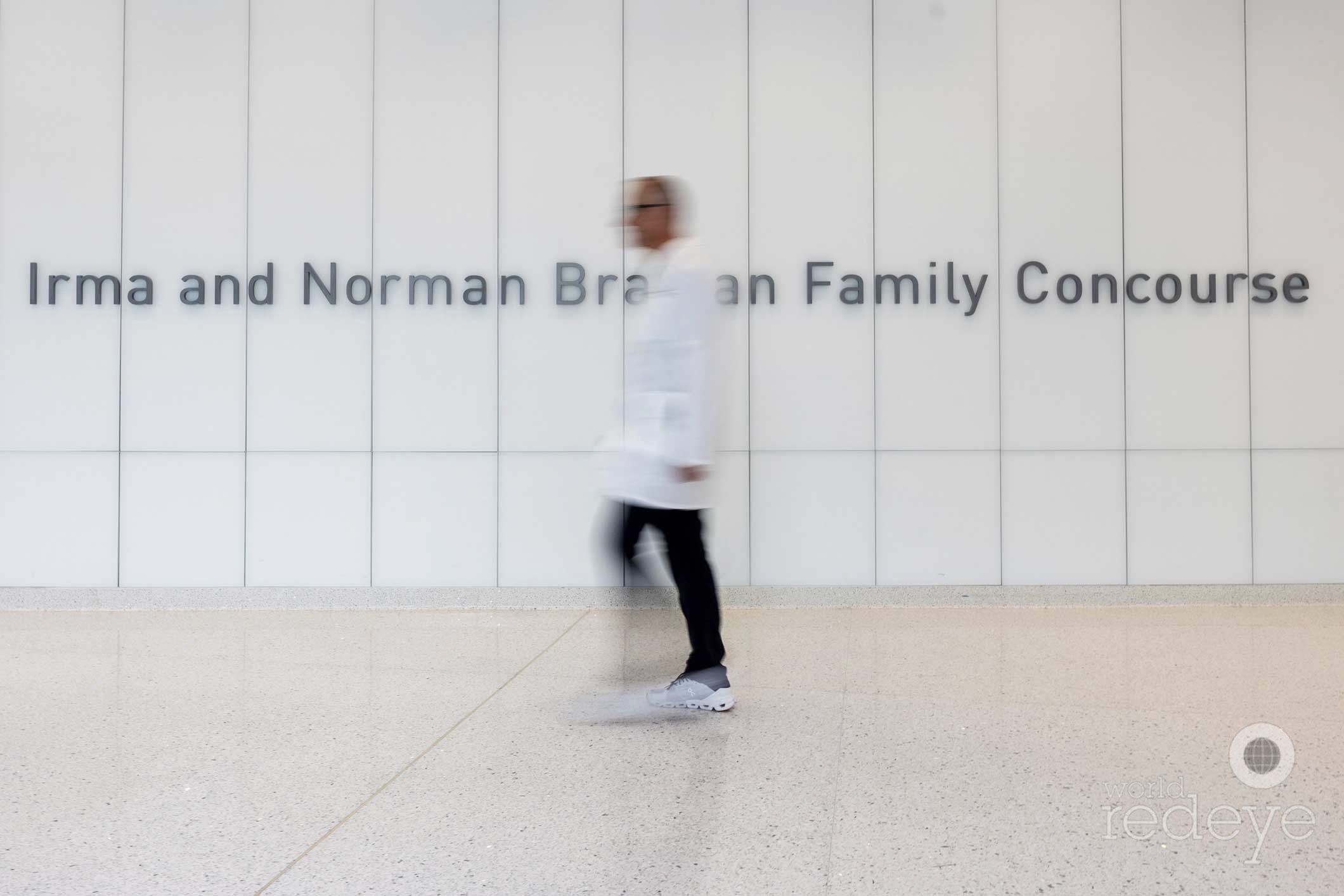
Dr. David A. Farcy
WRE: Your role is incredibly intense – what hobbies or rituals help you relax or unwind?
DF: I love the intensity of my job. It is, again, the fire that fuels my drive. I used to teach, publish articles, write textbooks, and speak at the national and international level, but after several years of that, I realized that I needed some self-care. I needed a way to disconnect. In 2008, at the intense pleasure of meeting my friend and teacher, Pedro Valente from the Valente Brothers Jujitsu, I was taken into his school under him and his brothers, who led me to self-care. They taught me that once you’re mentally drained, you serve no one, and that drive you once had disappears. Jujitsu became my outlet for mental wellness.
Music is a powerful source of emotion, and I am a huge fan of it. I have a playlist for all sorts of moods I’m in. Back in the day at Shock Trauma, the nurses would have a specific playlist based on the gravity of the patient. Just listening and walking in, I knew. For example, if it was Rage Against the Machine, the patient was in critical condition, and time was my enemy.
All the way until COVID happened, my life was based on my career. But facing death or seeing death in all different forms and situations—something we did not comprehend or understand—became worse when driven by false information and data. Fighting misinformation made me stop all the rituals that I used to relax and unwind. But God works in mysterious ways, and I was blessed in June 2022 with the birth of my identical twin boys. I will make a lot of people upset, but I thought, “I knew what love is,” like the song from Foreigner. But I really found out what love was when our twins were born.
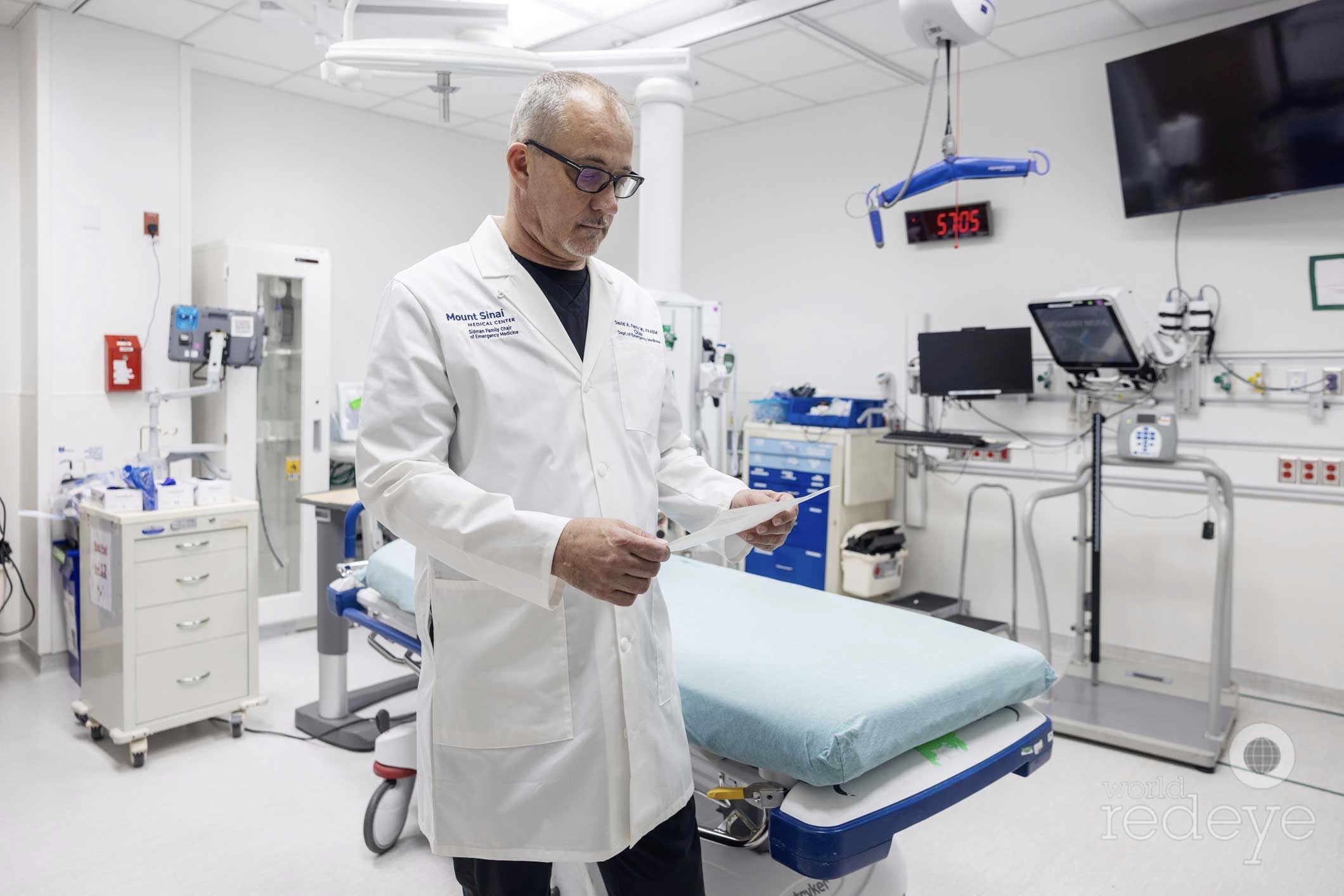
Dr. David A. Farcy
WRE: What’s something about you that might surprise people, especially those who know you only in a professional setting?
DF: I have a passion and love for the moon. I try to photograph the moon on every full moon occasion that I can. I once stood for 12 hours on the beach and photographed a total eclipse of the moon.
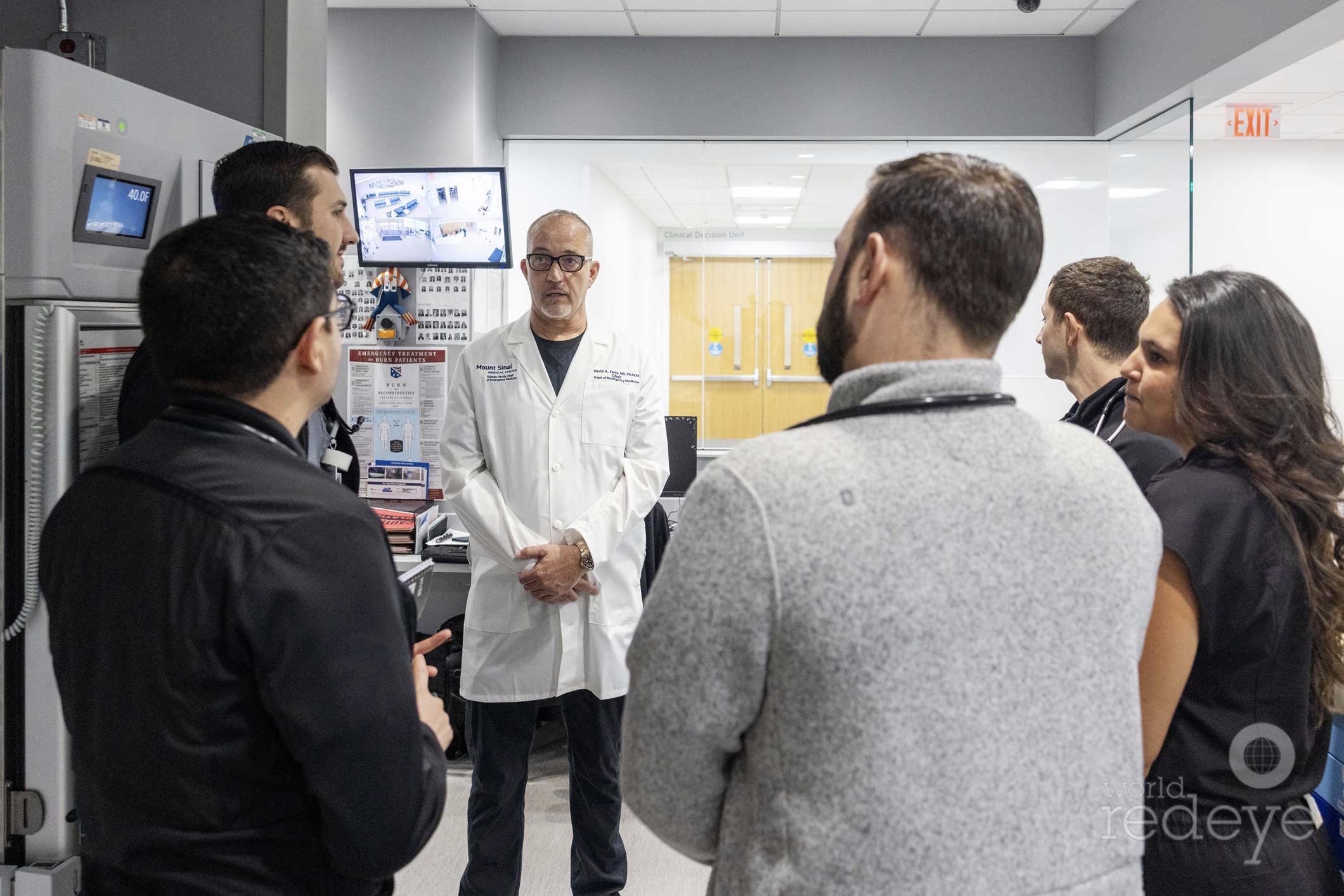
Dr. David A. Farcy
WRE: How has your career influenced your approach to health, family, and everyday life?
DF: My career has been influenced by my grandfather and my father, both doctors. You’re not just treating a patient; you’re treating someone’s dad, mother, grandparents, brothers, sisters, etc. They have names, and they are loved. My career solidified itself at the birth of my twin boys. I can tell you they’re not just toddlers; they are my everything. So when I see a doctor in training overlooking or underlooking something, I use this expression that I’ve used for years, but now it’s even truer: “If this were my boys, I would expect the best care and compassion.”
When I get sad or feel that sadness is turning into a bigger potential event, I turn to my photo album and look at an album called Second Chance in Life: Photos of me and patients who were either dead (no pulse, not breathing) for some time, from single minutes to double-digit minutes, but who were saved and returned to a normal life. Over the years, the album has grown and grown. I just have to look at their faces, and it gives me the strength to find that strength to be back and smile.
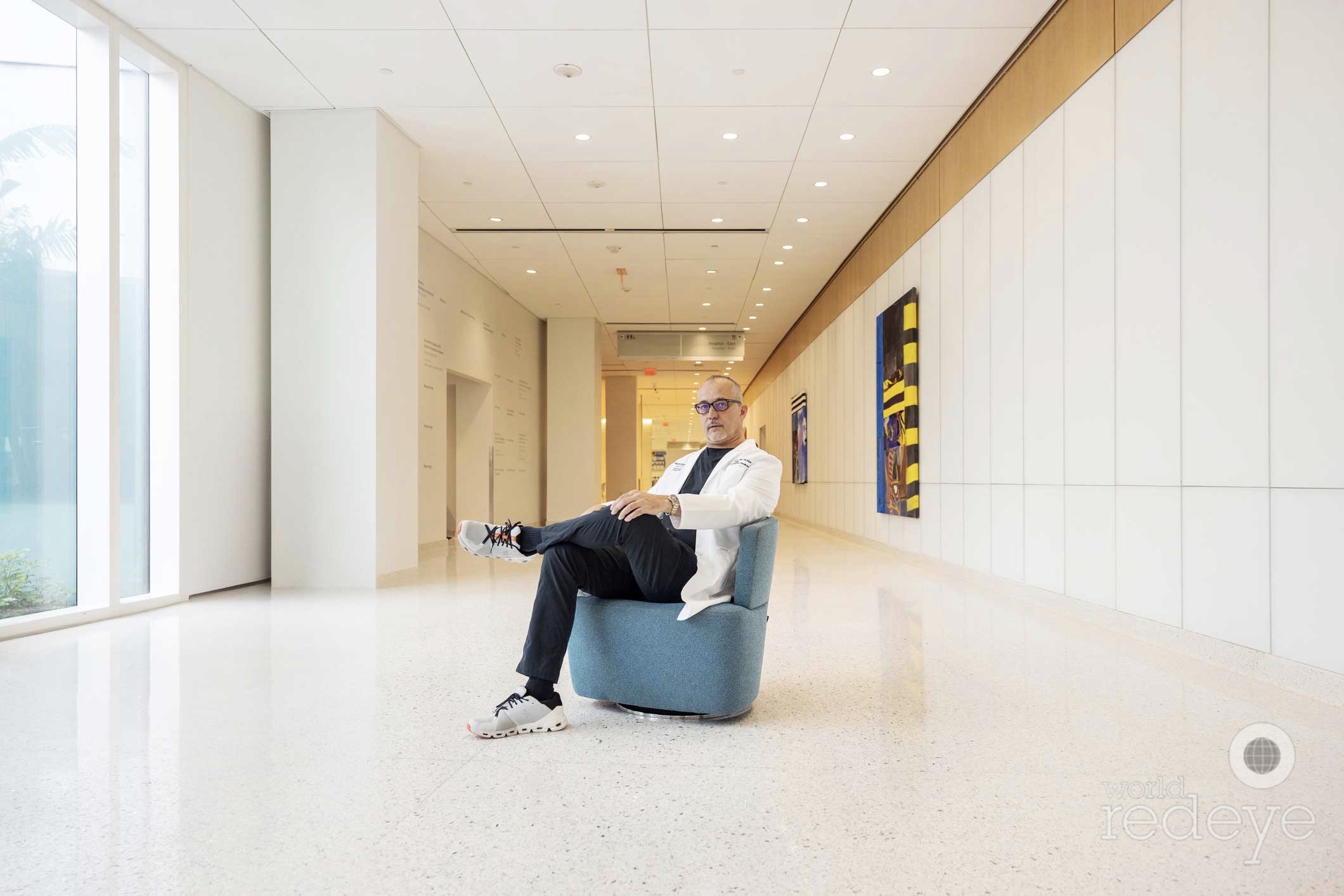
Dr. David A. Farcy
WRE: When you have a day off, where are your favorite spots to eat or explore in Miami?
DF: Miami has been my playground for the past two decades. It is a phenomenal transformation to have watched. My friends and owners of many restaurants have made me feel like I am part of their families. Roman Jones, my brother, has always opened his establishment to me, so I’ll start with Kiki on the River. Mickey, another brother, has made Casa Tua my second home. David Grutman has always opened his arms and welcomed me to any of his establishments. Alan Faena and Faena Rose have reinvented culture, networking with amazing events. Anthony and Cathy, the owners of Call Me Gabby and the new Vietnamese restaurant GAO, which is my comfort food, have become my family. Also, the beach is my twin’s favorite hangout… “Playa Papa, Playa Papa”.
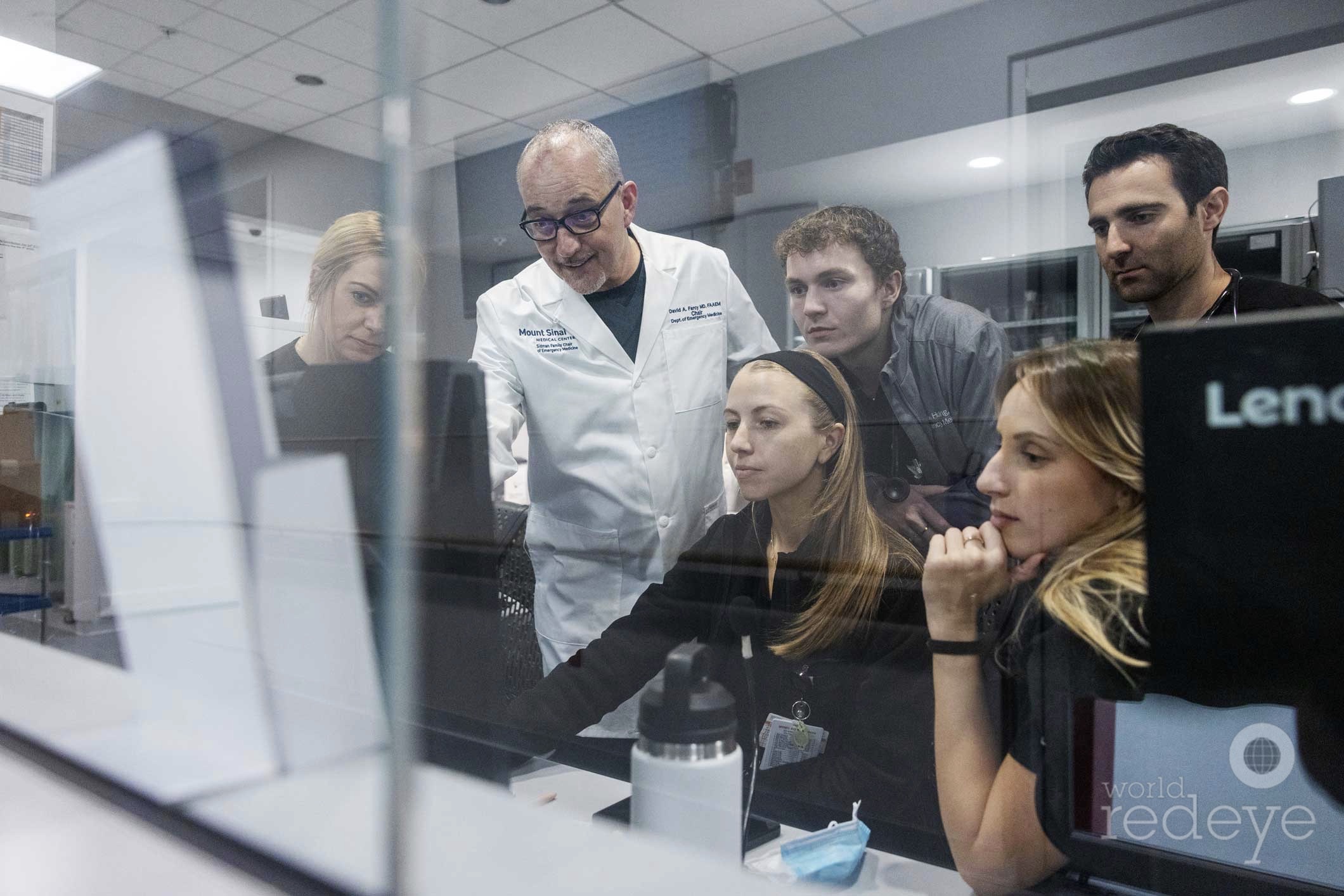
Dr. David A. Farcy
WRE: What advice would you give to young doctors in Miami?
DF: My advice to any doctors in Miami, especially our residents and young generation, is don’t get lost and lose yourself, as Miami can be very toxic. Set realistic goals, live below your means, do not be envious, stay honest, and if it’s too good to be true, it’s a scam. Miami is a place where billionaires and millionaires mingle with the rest of us, and it’s easy to become envious. Money does not define you, nor does it make happiness. It certainly contributes to it, but it should not be your primary goal. Your primary goal is to form a network of friends and pick up a hobby.
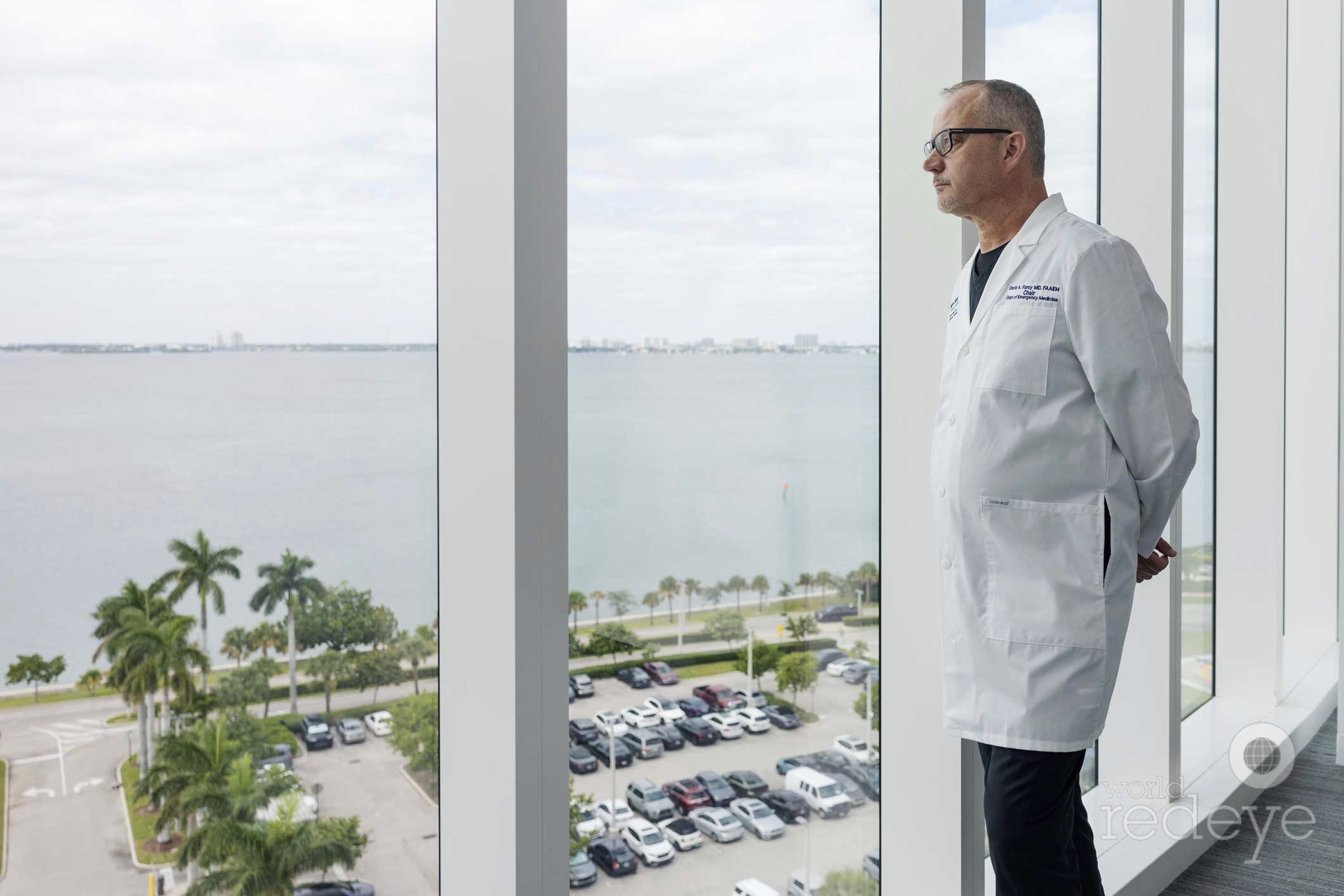
Dr. David A. Farcy
 Q&A: A Look at The Garden at Bouchon with Chef Thomas Keller
Q&A: A Look at The Garden at Bouchon with Chef Thomas Keller Q&A: From Tel Aviv to Miami with AVIV at 1 Hotel South Beach
Q&A: From Tel Aviv to Miami with AVIV at 1 Hotel South Beach Q&A: Steak, Luxury, and “I Don’t Give a F*@k”: Maple & Ash Arrives in Miami
Q&A: Steak, Luxury, and “I Don’t Give a F*@k”: Maple & Ash Arrives in Miami Q&A: El Car Wash: Turning Suds into Success
Q&A: El Car Wash: Turning Suds into Success Steve Madden’s Dolce Vita Debuts Furst U.S. Mall Store in Aventura
Steve Madden’s Dolce Vita Debuts Furst U.S. Mall Store in Aventura WRE News: Proper Hospitality Unveils First Miami Residential Project Set to Debut in 2028
WRE News: Proper Hospitality Unveils First Miami Residential Project Set to Debut in 2028 WRE News: The $1.7 Billion Road: Inside Miami’s Most Exclusive Neighborhood
WRE News: The $1.7 Billion Road: Inside Miami’s Most Exclusive Neighborhood WRE News: Billionaire Ken Griffin Lists One Thousand Museum Penthouse for $23M
WRE News: Billionaire Ken Griffin Lists One Thousand Museum Penthouse for $23M WRE News: Florida Bill Could End Hidden Restaurant Service Fees & Automatic Gratuities
WRE News: Florida Bill Could End Hidden Restaurant Service Fees & Automatic Gratuities WRE News: $3B Little River Redevelopment Plan Nears Approval
WRE News: $3B Little River Redevelopment Plan Nears Approval EATZ by Chris Valdes with Loews Miami Beach Hotel
EATZ by Chris Valdes with Loews Miami Beach Hotel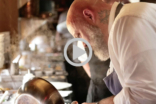 WRE Films: The Pasta Maestro Has Arrived at Mother Wolf Miami
WRE Films: The Pasta Maestro Has Arrived at Mother Wolf Miami WRE Films: All the Sushi Your Heart Desires at Mayami Wynwood
WRE Films: All the Sushi Your Heart Desires at Mayami Wynwood WRE Films: Miso Marinated Grilled Bavette Steak at Elastika Miami
WRE Films: Miso Marinated Grilled Bavette Steak at Elastika Miami WRE Films: It’s Time for a Refuel at Yann Couvreur Café
WRE Films: It’s Time for a Refuel at Yann Couvreur Café WRE News: Proper Hospitality Unveils First Miami Residential Project Set to Debut in 2028
WRE News: Proper Hospitality Unveils First Miami Residential Project Set to Debut in 2028 WRE News: The $1.7 Billion Road: Inside Miami’s Most Exclusive Neighborhood
WRE News: The $1.7 Billion Road: Inside Miami’s Most Exclusive Neighborhood Groundbreaking of Continuum Club & Residences
Groundbreaking of Continuum Club & Residences WRE News: Billionaire Ken Griffin Lists One Thousand Museum Penthouse for $23M
WRE News: Billionaire Ken Griffin Lists One Thousand Museum Penthouse for $23M WRE News: $3B Little River Redevelopment Plan Nears Approval
WRE News: $3B Little River Redevelopment Plan Nears Approval
